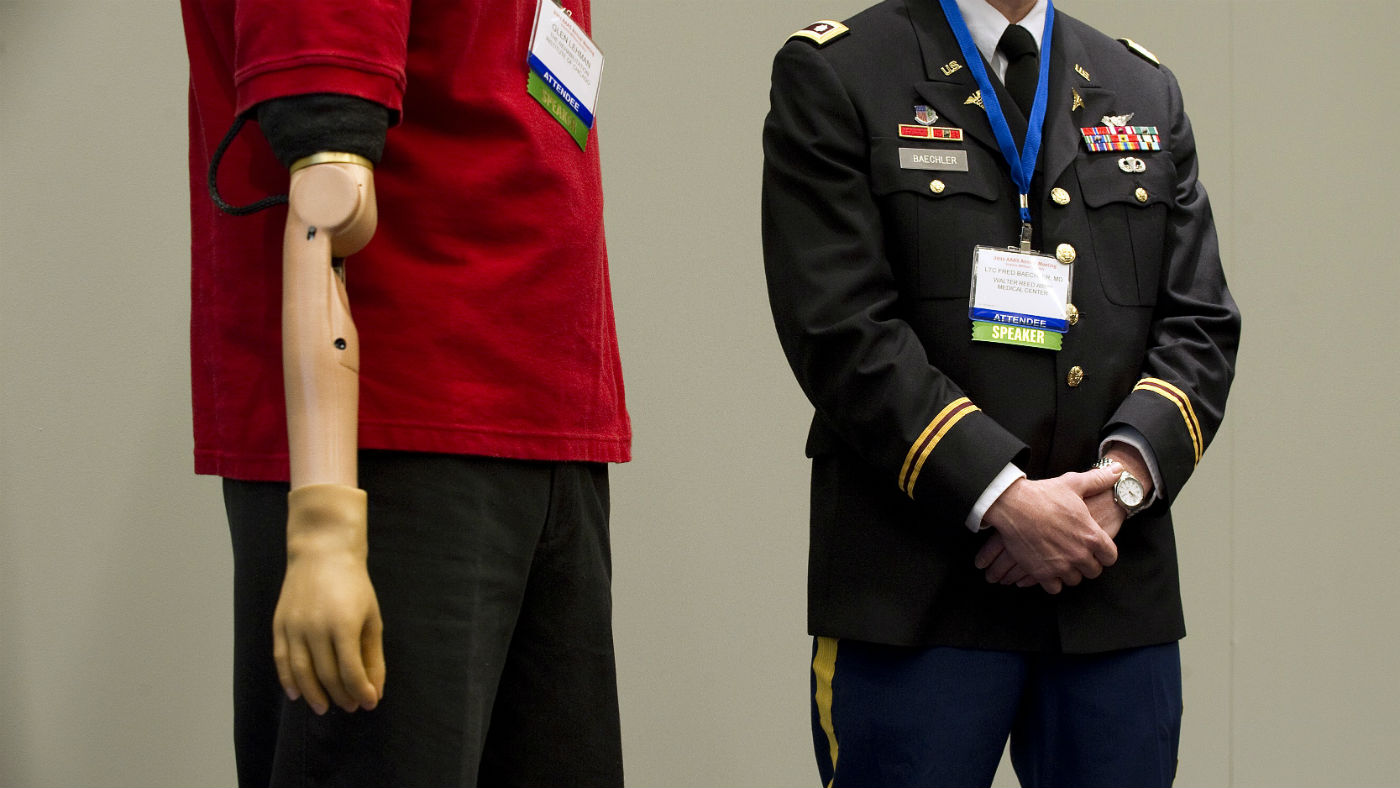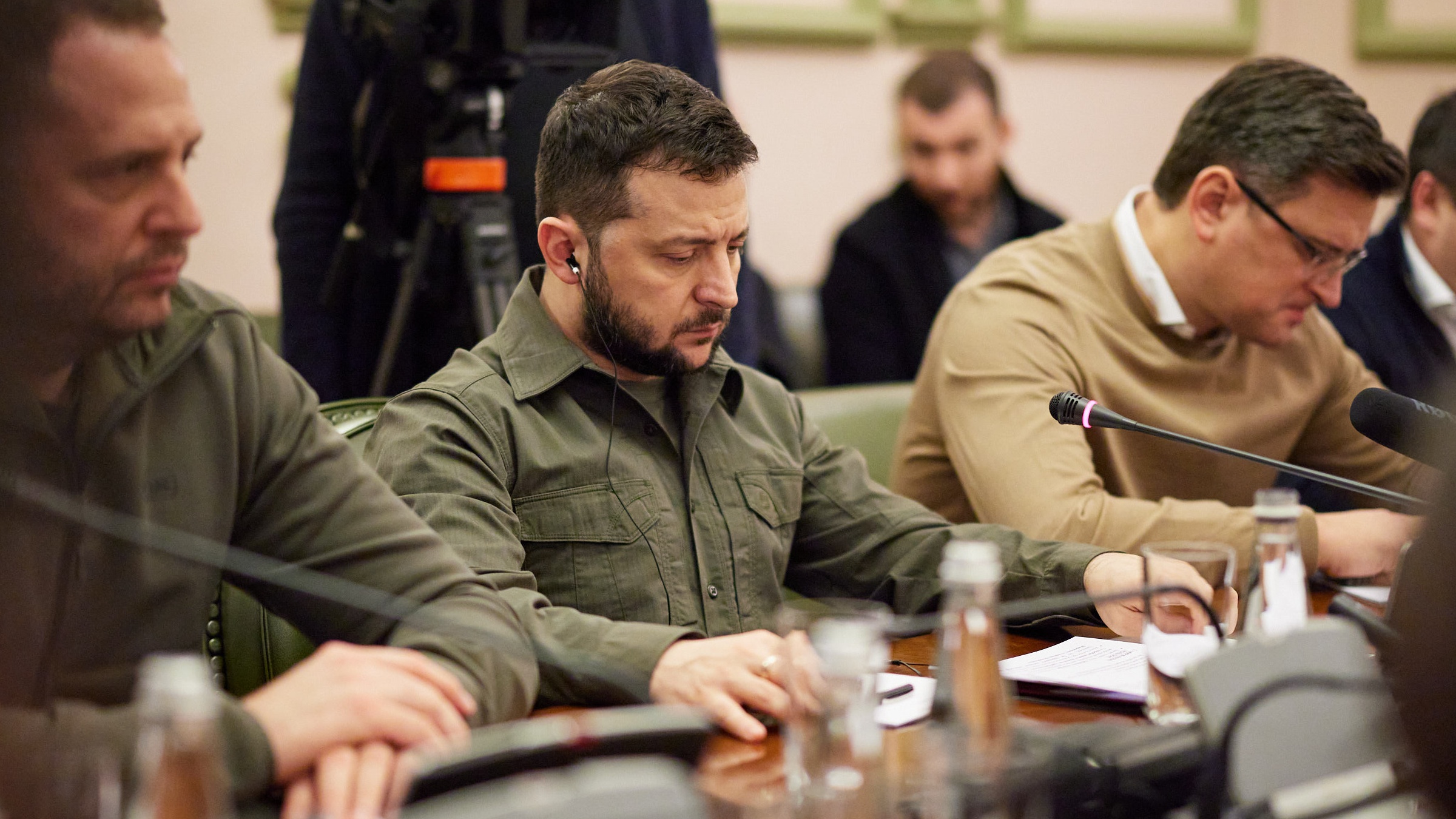Robots and ‘enhanced’ humans to fight future wars
Defence secretary warns of growing threat to UK posed by new technology

A free daily email with the biggest news stories of the day – and the best features from TheWeek.com
You are now subscribed
Your newsletter sign-up was successful
Robots and “enhanced” humans will increasingly fight the wars of the future, a new Ministry of Defence report has concluded.
Setting out the potential challenges facing the UK in the decades to come, The Future Starts Today warns of an increasing risk from nuclear and chemical weapons as technology rapidly advances. Technology will also lead to “new areas of conflict” opening up, including space and cyberspace, with weapons of mass destruction also more likely.
The UK Defence Secretary Gavin Williamson, said the report made “clear” that the world is becoming “rapidly more dangerous, with intensifying challenges from state aggressors who flout the rules, terrorists who want to harm our way of life and the technological race with our adversaries.”
The Week
Escape your echo chamber. Get the facts behind the news, plus analysis from multiple perspectives.

Sign up for The Week's Free Newsletters
From our morning news briefing to a weekly Good News Newsletter, get the best of The Week delivered directly to your inbox.
From our morning news briefing to a weekly Good News Newsletter, get the best of The Week delivered directly to your inbox.
It also warns of the potential political and social unrest caused by the impact of robots on the workplace, and the need to stop the spread of misinformation online and on social media.
But it is talk of cyborg soldiers that will cause most alarm.
Compiled with the help of experts from around the word, the report examines the possibility of “human enhancement” through gene editing, physical and mental prothesis and the use of drugs.
The Daily Mail says the “chilling” findings mean that “the breeding of genetically modified troops could be a reality within a generation”.
A free daily email with the biggest news stories of the day – and the best features from TheWeek.com
An article published this month in The Atlantic details the Pentagon’s ongoing push to programme soldiers’ brains so that future “super-soldiers” can control robots with their thoughts.
The benefits of medically enhanced soldiers include being able to lift huge weights and run at high speeds over extreme distances. Troops could also have infra-red night vision and be capable of transmitting their thoughts through electronically aided telepathy.
The willingness to adopt these technologies could confer a competitive advantage over adversaries, but “moral, ethical and legal thresholds” would need to be defined, says The Independent.
Sputnik News says the report “comes at a time of snowballing global anxiety over the ethics of weaponising artificial intelligence and robots in the battlefield, signified by the recent submission of an open letter to the United Nations calling for such technologies to be banned”.
Last month, talks aimed a preventing the development of so-called “killer robots” – fully autonomous weapons that can act without human oversight – were blocked by the US and Russia.
The report concluded that: “While it is envisaged that humans will continue to be central to the decision-making process, conflicts fought increasingly by robots or autonomous systems could change the very nature of warfare, as there will be less emphasis on emotions, passion and chance.”
-
 Political cartoons for February 16
Political cartoons for February 16Cartoons Monday’s political cartoons include President's Day, a valentine from the Epstein files, and more
-
 Regent Hong Kong: a tranquil haven with a prime waterfront spot
Regent Hong Kong: a tranquil haven with a prime waterfront spotThe Week Recommends The trendy hotel recently underwent an extensive two-year revamp
-
 The problem with diagnosing profound autism
The problem with diagnosing profound autismThe Explainer Experts are reconsidering the idea of autism as a spectrum, which could impact diagnoses and policy making for the condition
-
 Is Henry Kissinger right about Ukraine?
Is Henry Kissinger right about Ukraine?Speed Read The US statesman made a controversial speech at a virtual Davos appearance last week
-
 Volodymyr Zelenskyy refused evacuation as Russian hitmen ‘parachuted’ into Kyiv
Volodymyr Zelenskyy refused evacuation as Russian hitmen ‘parachuted’ into KyivSpeed Read Ukrainian president turned down opportunity to leave capital despite threat to life, adviser claims
-
 America’s withdrawal from Afghanistan: a retreat into isolationism?
America’s withdrawal from Afghanistan: a retreat into isolationism?Speed Read ‘In his selfish unilateralism’, Biden is no better than Trump, said The Daily Telegraph
-
 The ‘heat dome’: blistering temperatures in the Pacific Northwest should act as a wake-up call
The ‘heat dome’: blistering temperatures in the Pacific Northwest should act as a wake-up callSpeed Read People are used to hearing of record-high temperatures in desert states such as Nevada or Arizona, but not in verdant Washington and Oregon
-
 Royal Marines ready to ‘disrupt and confuse’ enemies
Royal Marines ready to ‘disrupt and confuse’ enemiesSpeed Read Military chief says operating in area between peace and war could prevent all-out conflict
-
 US Secret Service screening inauguration troops for riot sympathisers
US Secret Service screening inauguration troops for riot sympathisersSpeed Read National Guard members under investigation as mob member claims GOP lawmakers aided Capitol siege
-
 Plea for public to help find secret Second World War bunkers
Plea for public to help find secret Second World War bunkersSpeed Read Hundreds of ‘Scallywag’ underground hideouts lie undiscovered in British countryside
-
 GCHQ unveils annual Christmas card puzzle - can you solve it?
GCHQ unveils annual Christmas card puzzle - can you solve it?Speed Read Spy agency challenges ‘wise men and women’ to take on bauble brainteaser